Making my way towards the mirror: my struggle with body image
As I restlessly tossed about my floral printed bedding, I dreamt of the calories that I had consumed that day. The numbers gyrated across my vision, building in intensity until my ears were filled with a high-pitched screeching sound. Overwhelmed, my panting startled me awake. Reaching into the darkness, I grasped my sheets in hopes of returning to a state of full consciousness. Although half asleep, I wandered out of my dark bedroom and down the wooden-floored hallway. The bathroom light flickered on after I flipped the switch. Gazing at my reflection in the mirror above the sink, I cinched in the waist of my sweatshirt and began to sob.
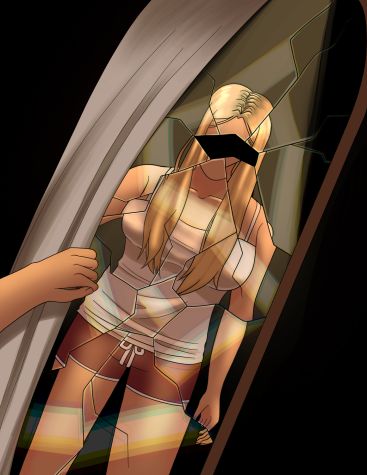
I didn’t used to be obsessed with my weight.
In March 2020, school was shut down and my extracurriculars such as soccer were put on pause as the pandemic began to take hold of the world. My normal routine and activities suspended, I started to spend more time on social media to find comfort and familiarity. TikTok, one of the apps I use the most, curated a homepage dominated by videos that promoted a popular fitness influencer on YouTube. A Google search of her name revealed workout videos titled, “Get Abs in 2 Weeks,” “Tiny Waist and Round Butt Workout,” and “10 Min Morning Routine to Burn Belly Fat.” Skinny and toned, this video creator was the blueprint of society’s body ideals. It was impossible for me to not compare myself to her — I couldn’t help but look down at my body and criticize it for not having the same defined abs or lean legs that she did. It felt as if my worth would be greater if I was skinny like this YouTuber, so I sought to change my physique through morning exercises.
With this newfound ideal to live up to, I set my abrasive alarm for 7 a.m. each morning in an attempt to force myself to work out. No matter how fatigued I felt, I dragged myself out of bed to stop the disturbing sound and put on my exercise clothes. Drenched in sweat, I mimicked the YouTube fitness instructor’s movements while she energetically smiled, waving at the camera without a sign of perspiration. Amidst her workouts, I counted down the minutes until the end, dreading the next movement I had to complete. Despite my aversion towards this routine, I followed it every day because I believed that if I became skinny, then I would be happy.
I believed that if I became skinny, then I would be happy.
When my abs failed to materialize within two weeks, I turned to other ways of achieving the body I wanted. I immersed myself in YouTube pages that promoted calorie-counting, obsessively weighing myself, and over-exercising to the point of pure exhaustion. My mind became constantly absorbed with thoughts about food guilt. I started to view many of the foods that had once brought me joy and comfort as villains. Oftentimes I would skip family dinners or excursions with friends because I did not know precisely how many calories were in the food we would eat together. It felt as if I was stuck in an endless restrictive cycle. These restrictive eating habits changed my perfectly functioning body into one that experienced recurrent episodes of weakness in daily activities, including sports.
As soccer practices started up again in March 2021, I was excited, believing that I was now stronger from my exercise and diet changes. I eagerly walked onto the fog-enveloped turf field and happily greeted my team. When it came time to scrimmage, I braced myself as my teammate dribbled towards me for a one-on-one play. Our shoulders locked and I was instantly shoved to the ground. As I laid there catching my breath, staring into the opaque-white sky, I finally came to the realization: I was making my body weak. I finally came to the realization: I was making my body weak.
This revelation was just the first step. It took me much reflection and time to figure out how I would reclaim my food freedom. I started to open up to trusted people in my life, coming clean about my mangled relationship with my body. My dad redirected me to healthier forms of exercise, convincing me to start weightlifting. This would come to change my mentality completely by helping me realize that my muscles need proper nutrition to grow and that food is not the enemy. Rather than struggling internally, I was finally finding positive ways to release my self-destructive thoughts and take back control of my mind.
My journey hasn’t come full circle yet. As I’ve returned to in-person school, I have struggled to adjust to a routine different from that of quarantine. With added social pressures, everyday activities such as picking out an outfit in the morning or eating lunch around people can seem daunting. But the healing process isn’t linear, and that’s okay.
I now know that I have the tools to mend my relationship with my body, and the motivation to make it happen. Moving away from social media use and involving myself more in real-life interaction such as spending time with friends has helped me avoid unfair comparisons. I have found that weightlifting has been the main contributor in changing my outlook on my self-image. Instead of constantly trying to shrink my body, weightlifting has encouraged me to want to grow stronger not only physically, but also mentally. With this newfound strength, I can finally step out of the darkness, make my way towards the mirror and see my body in a positive light.

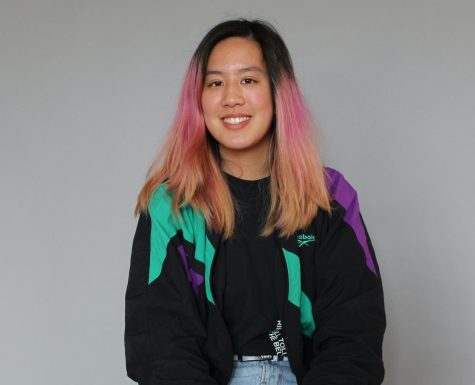


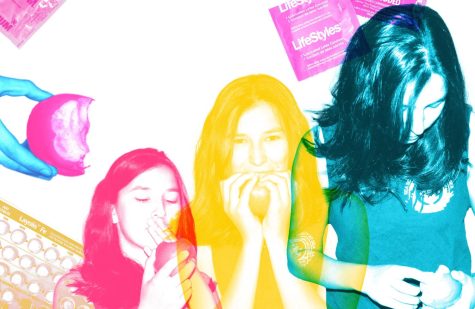
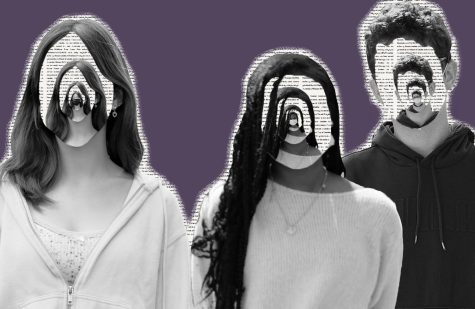



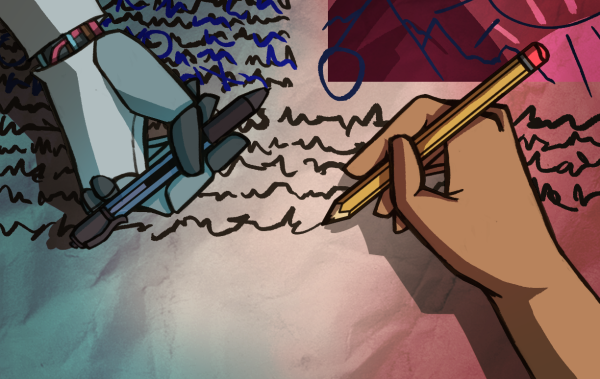

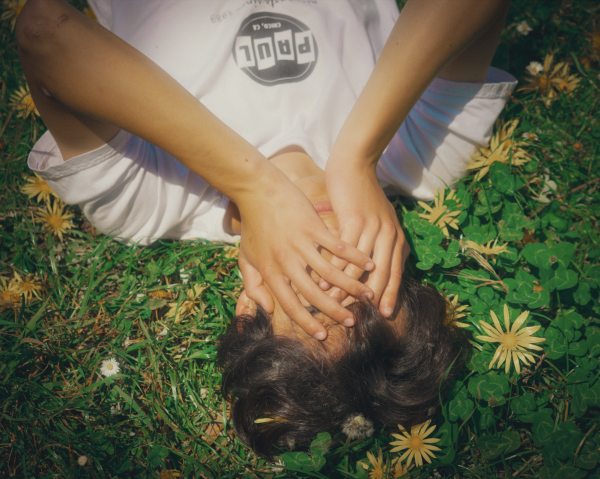
Gordon Atkinson • Oct 17, 2021 at 2:22 pm
Beautifully written. I know it takes courage to admit our mistakes and failures but candid confessions like this can inspire and encourage others to face similar challenges. There is no shame in admitting failure but there can be great loss in not recognizing it.